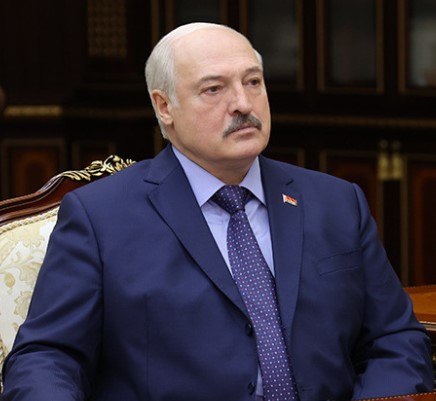Spiegel reports surge in demand for home heaters in Germany

Gas cylinders and oil coolers are gradually disappearing from the shelves of German hardware stores, writes Spiegel in the morning newsletter.
According to the authors, the current shortage is similar to that of toilet paper in early 2021 during the start of the covid-19 pandemic .
Spiegel journalists incidentally blame the energy crisis on Russian President Vladimir Putin, who is waging a "psychological war" with Europe. “Putin is trying to intimidate the [EU] political community and ensure sustainable destabilization,” the publication claims.
Earlier, the demand for home heaters in Germany had sharply increased, the press service of DIY home appliance stores reported. The retail chain said that prices for heaters have been rising since early July amid fears of a cold winter and expensive gas.
According to the German broadcaster WDR, major hardware store chains in Germany have confirmed an increase in demand for oil-filled radiators, convection heaters, stoves, as well as firewood, bottled propane and pellets.
In Germany, warned about the risk of a shortage of toilet paper because of "Gazprom" Politics 15 am Articles Pro 150 thousand rubles. for a newbie:
Gas prices in Europe have been rising since the beginning of June, when Gazprom announced a reduction in supplies through Nord Stream 1 due to the non-return of one of the turbines used at the Portovaya compressor station from repair. Against this background, deliveries decreased from the planned 167 million cubic meters. m per day to 100 million, and then, after the decommissioning of another unit, up to 67 million cubic meters. m.
On July 27, Gazprom stopped the operation of another turbine, thus reducing the gas flow from 65 million cubic meters. m per day up to 35 million cubic meters. m, or 20% of the design capacity of the gas pipeline. Against this background, the exchange price of gas exceeded $2,300 per 1,000 cubic meters for the first time since March.
The German authorities called the reduction in supplies via Nord Stream 1 "the Kremlin's strategy." “I believe that Gazprom is no longer the master of its own decisions,” said German Vice Chancellor Robert Habek, calling the situation around Nord Stream 1 and turbines a farce: “Everything is politicized, agreements are no longer respected.” Russia denied accusations that the reduction in supplies via Nord Stream 1 was due to political reasons.
Earlier, Spiegel, citing a study by the Civey Public Opinion Research Institute, reported that German residents, in anticipation of a long economic crisis, were determined to worsen their financial situation in the next five years. According to Civey, 71% of respondents expect the country's economic level to decline in the next five years, and only 11% of those surveyed believe that the situation will get better.
Read together with it:
- Новые горизонты сотрудничества: Россия и Аргентина обсуждают совместный доступ на рынки продукции животного происхожденияОдной из ключевых тем конференции стал контроль за производством ветеринарных препаратов в Аргентине. Аргентинская сторона представила свою систему контроля, включающую Управление ветеринарных продуктов и Управление лабораторий животных. Эти организации обеспечивают высокие стандарты безопасности, так как каждая производственная единица подвергается проверкам каждые 3-5 лет и зарегистрирована в ин...
- Zakharova promised "tough steps" in response to the 19th EU sanctions package.Maria Zakharova RUSSIA will respond harshly to the latest round of EU sanctions, Russian Foreign Ministry spokesperson Maria Zakharova stated on TELEGRAM . The EU previously adopted the 19th package of anti-Russian sanctions, which included a ban on the import of Russian LNG, new restrictions on oil companies, ships, banks, and the EXPORT of certain goods, as well as restrictions on the movement o...
- США ввели санкции против президента КолумбииПрезидент Колумбии, его жена и старший сын, а также глава колумбийского МВД попали под санкции США из-за трафика наркотиков из Колумбии в Штаты. Бессент обвинил Петро в отказе пресечь деятельность наркокартелей Густаво Петро Минфин США ввел санкции против президента Колумбии Густаво Петро, сообщается на сайте ведомства. «Президент Петро позволил наркокартелям процветать и отказался пресечь их деят...
- Чего ожидать от «одной из самых рискованных» поездок ТрампаДональд Трамп начал турне по Азии, в ходе которого встретится с лидерами ключевых стран, включая Си Цзиньпина. Почему эта поездка может оказаться сложнее, чем недавние визиты в Европу и на Ближний Восток — в статье РБК Дональд Трамп Какие встречи запланированы в ходе турне Президент США Дональд Трамп вылетел из Вашингтона поздним вечером в пятницу, 24 октября, и утром в субботу его борт приземлитс...
- Матричные РНК-вакцины от COVID продлили жизнь тяжелых раковых больныхМатричные РНК-вакцины против коронавируса продлили жизнь пациентам, больным раком в самой тяжелой, четвертой стадии, сообщает The Washington Post. К такому выводу пришли исследователи Онкологического центра имени М. Д. Андерсона Техасского университета и Университета Флориды. «Эти данные невероятно интересны, но они должны быть подтверждены в ходе третьего этапа клинических испытаний», — заявил од...





























































